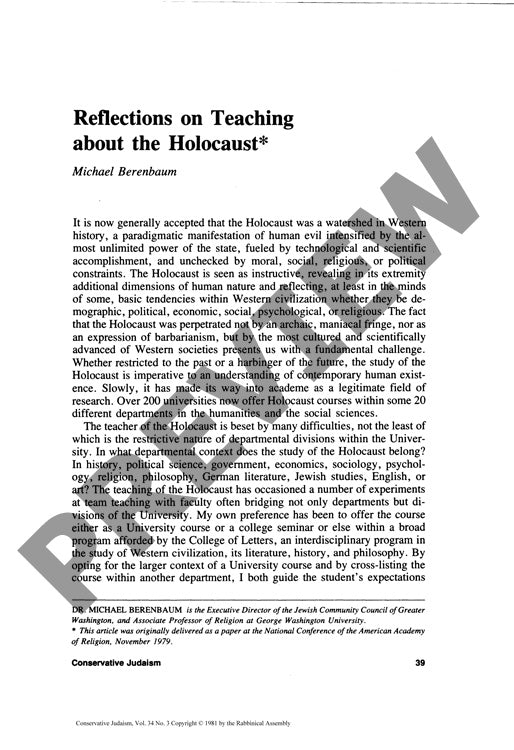Reflections on Teaching About the Holoca
Couldn't load pickup availability
Teaching the Holocaust within university curricula presents unique pedagogical challenges that test the boundaries between scholarly objectivity and moral responsibility. Drawing from extensive classroom experience, this examination reveals how effective Holocaust education requires carefully calibrated approaches to language, perspective, and the integration of diverse viewpoints from victims, perpetrators, and bystanders. Cross-departmental collaboration and interdisciplinary methods, incorporating both primary sources like diaries and memoirs alongside historical analyses, prove essential for comprehensive understanding. Kenneth Keniston's model of objectivity, wherein instructors openly acknowledge their subjective perspectives, enables students to better navigate this complex material. Significant challenges emerge around student psychological readiness, the risk of normalizing evil, and the tension between comprehension and mystification. Holocaust education must ultimately balance rigorous historical analysis with moral sensitivity, presenting rather than resolving ultimate questions. These findings illuminate how Holocaust studies can be effectively integrated into academic curricula while preserving both intellectual integrity and moral responsibility, emphasizing the importance of confronting this material as essential to understanding contemporary human existence.

More Information
-
Physical Description
-
Publication Information
Published 1981
ISBN
-
Publication Credits
Michael Berenbaum

